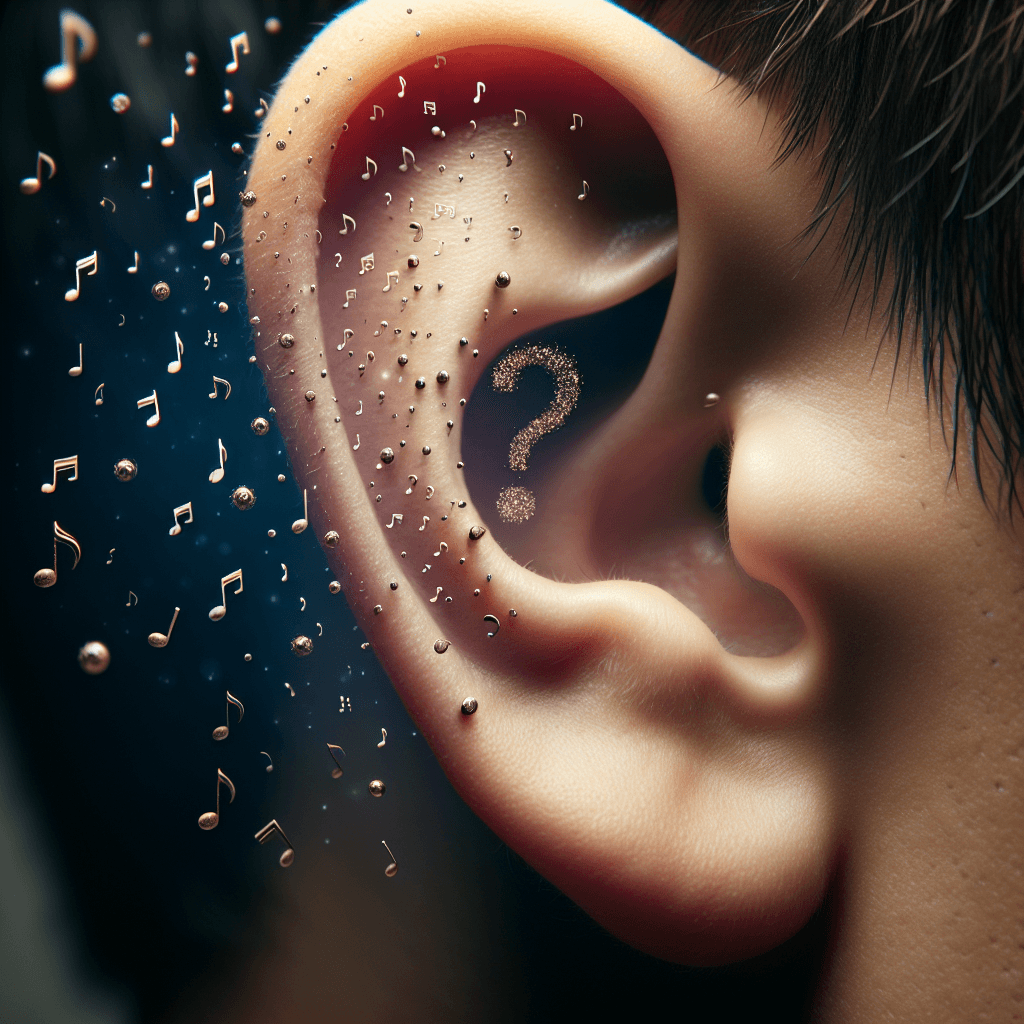Skin Tingles and Shivers: Why Do Certain Songs or Sounds Give You Goosebumps
Ever listened to a piece of music so moving that a wave of shivers ran down your spine? This physical reaction, known scientifically as 'frisson,' is a fascinating phenomenon triggered by sound, not cold.


Too Long; Didn't Read
The goosebumps you get from certain songs are a physical reaction called 'frisson.' This post explores the science behind why your brain triggers this powerful response to emotionally moving sounds.
Blog Post Title: Skin Tingles and Shivers: Why Do Certain Songs or Sounds Give You Goosebumps?
Introduction
Have you ever listened to a piece of music so moving that a sudden wave of shivers ran down your spine, raising the tiny hairs on your arms? It's a peculiar, often pleasurable sensation – goosebumps triggered not by cold or fear, but by sound. This physical reaction, known scientifically as "frisson" (French for "shiver"), is experienced by many, yet its origins remain a fascinating area of study. Why do specific melodies, harmonies, or even just a single powerful note provoke such a distinct physiological response? This post delves into the science behind why certain songs or sounds give you goosebumps, exploring the interplay between our brains, emotions, and the music we hear.
## What Exactly is Frisson?
Frisson, sometimes called "aesthetic chills" or even informally a "skin orgasm," is the term researchers use for that goosebump-inducing shiver sparked by stimuli like music, beautiful art, or emotionally compelling film scenes. Physiologically, it’s linked to the same reflex that causes goosebumps (piloerection) when we're cold or frightened. This involves the tiny arrector pili muscles attached to hair follicles contracting, making the hairs stand on end. In the context of music, however, it's not usually triggered by temperature or immediate danger, but by something far more complex happening within our nervous system. It often coincides with a release of adrenaline, similar to a 'fight-or-flight' response, but interpreted by the brain in a context of pleasure and safety.
## The Brain on Music: Anticipation, Surprise, and Reward
One compelling explanation for why certain songs give you goosebumps lies in how music interacts with our brain's reward system. Studies, such as those involving neuroimaging, have shown that listening to intensely pleasurable music activates brain regions rich in dopamine receptors – the same pathways involved in anticipating and experiencing rewards like food, sex, or addictive drugs.
Music often creates patterns and expectations. Our brains become adept at predicting what comes next in a melody or rhythm. Frisson frequently occurs when these expectations are cleverly violated or delayed, then satisfyingly resolved. Think about:
- Sudden changes: A quiet passage abruptly swelling into a loud chorus.
- New elements: The unexpected entry of a soaring voice or instrument.
- Harmonic shifts: Moving to an unforeseen chord progression that feels emotionally poignant.
- Appoggiaturas: These are dissonant notes that clash slightly with the main harmony before resolving, creating tension and release.
According to research highlighted by neuroscientists like Valorie Salimpoor, when music builds anticipation and then delivers either the expected resolution or a delightful surprise, the brain releases dopamine, leading to feelings of pleasure and, for some, the physical sensation of frisson. It's the brain simultaneously predicting and being surprised, creating a potent emotional cocktail.
## Emotional Resonance and Memory's Echo
Music is intrinsically linked to emotion. Specific musical structures, like minor keys or slow tempos, are often culturally associated with sadness, while major keys and faster tempos correlate with happiness. When a song taps into powerful emotions – joy, sadness, awe, nostalgia – it can trigger a strong physiological response.
The amygdala, a key brain region for processing emotions, becomes highly active when we experience frisson. Furthermore, music has a remarkable ability to evoke memories. A song linked to a significant past event or person can instantly transport us back, bringing the associated emotions flooding to the surface. This potent combination of strong emotion and vivid memory recall can easily overwhelm our systems in a way that manifests as goosebumps. If a song holds deep personal meaning, it's far more likely to induce frisson.
## Are There Evolutionary Roots?
While harder to prove definitively, some scientists speculate that frisson might have evolutionary origins. The piloerection response originally helped our ancestors appear larger to predators or provided extra insulation. Could the shivers from music be a remnant of an ancient warning system, now reappropriated? Perhaps certain sounds – like a sudden high-pitched cry (mimicked by a soaring violin or vocal) – triggered an alert response that we now interpret as emotionally moving in the safe context of music. Others suggest it might relate to social bonding signals within early human groups. These ideas remain largely speculative but add another layer to the mystery.
Conclusion
The reason why certain songs or sounds give you goosebumps isn't down to one single factor. It's a fascinating convergence of brain chemistry, emotional processing, memory, and the intricate structure of music itself. The dopamine-fueled reward system responding to anticipation and surprise, the deep connection between music and our core emotions mediated by the amygdala, and the powerful echo of personal memories all play crucial roles. While not everyone experiences frisson, for those who do, it's a powerful reminder of music's unique ability to bypass our rational minds and tap directly into our deepest physiological and emotional responses. So, the next time a song sends shivers down your spine, appreciate the complex neurological dance happening within you.


